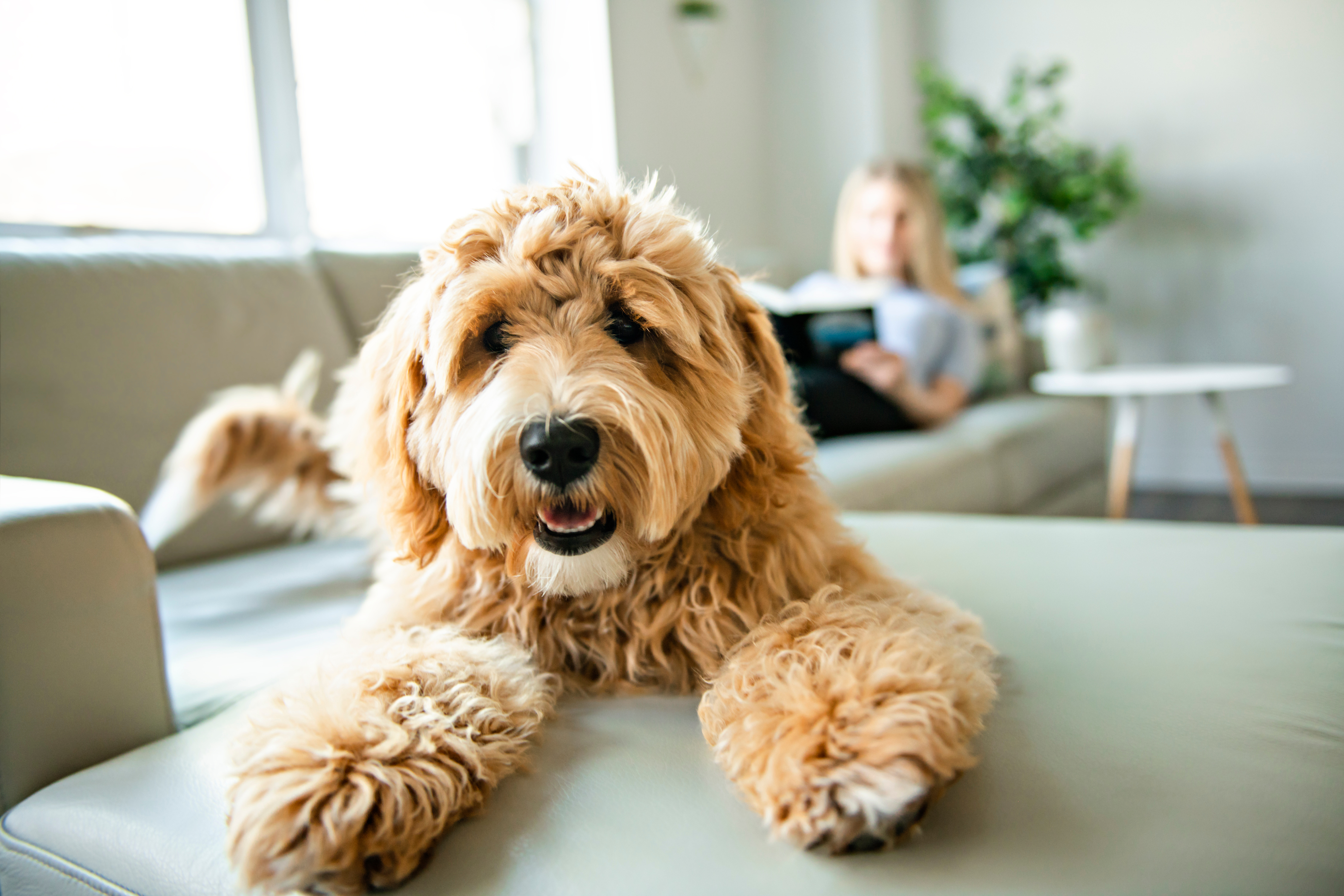Understanding Separation Anxiety in Dogs and Curing It
Separation anxiety is one of the most common issues that pet owners run into with their dogs. Dogs are very intuitive and wise animals and grow attached to their owners. They see us as their friends and playmates but also as their providers and caretakers. If we aren't around, they start to worry about who's going to take care of them and provide for them. Additionally, most dogs struggle with the fear of missing out (FOMO), which adds to their separation anxiety.
Unfortunately, separation anxiety can lead to health and mental issues with dogs. If you want to avoid these issues, it's important to note your dogs' separation anxiety and take measures to help them. This article will help you better understand why dogs have separation anxiety and what you can do to help them.
- What is Separation Anxiety in Dogs?
- How to Tell if Your Dog Has Separation Anxiety
- Is Separation Anxiety Preventable?
- Health Issues That Can Stem From Separation Anxiety
- Tips for Helping Your Dog's Separation Anxiety

What is Separation Anxiety in Dogs?
Just like humans, dogs can struggle with separation anxiety. Separation anxiety is when your dog is afraid of the idea of being alone and separated from you. Separation anxiety has always been an issue for dogs, but it became even worse during the Covid pandemic. Dogs started getting used to the idea of having their owners around them 24/7. Therefore, when people started heading back to work, even dogs who previously didn't have separation anxiety suffered from it.
Separation anxiety stems from your dog's desire to be close to you. They grow to love and rely on you for everything. Therefore, when you aren't around, they worry that you won't come back or that they're missing out on something. While separation anxiety stems from love and affection, it's a major problem that could have health ramifications.
How to Tell if Your Dog Has Separation Anxiety
When you leave the house, it's normal for your dog to bark, whimper, or whine. While these are potential warning signs of a problem, separation anxiety is a deeper level of stress and discomfort. Here are some warning signs to watch out for that could indicate separation anxiety.
- Excessive pacing and whining as you prepare to leave the house.
- Destructive behavior includes shredded shoes, socks, clothing, and furniture.
- Howling and barking that's over the top and excessive and continue long after you leave.
- Scratching the floor around doors, windows, and other entry points.
- Pooping or peeing in the house while you're gone.
- Drooling, panting, trembling, and salivating as you leave or prepare to leave.
It's important to watch out for these warning signs and take your dog to a vet if you notice them.

Is Separation Anxiety Preventable?
In most cases, separation anxiety is both preventable and curable. However, the key to recovery is determining if there's an underlying reason for your dog's anxiety. It's possible that they have a serious health issue that's causing their anxiety. If this is the case, taking your dog to the vet for a diagnosis and treatment plan could cure the health issue and separation anxiety in one fell swoop.
Health Issues That Can Stem From Separation Anxiety
GI issues are a major by-product of separation anxiety for dogs. The stress and tension of you leaving them gets their stomach in knots and can lead to GI problems, including ulcers, diarrhea, vomiting, pancreatitis, and Crohn's Disease.
Separation anxiety can also lead to desperate attempts by your dog to escape home and accompany you. This, in turn, can lead to cuts, gashes, sprains, broken teeth, broken claws, and broken bones that they sustain while trying to escape.

Tips for Helping Your Dog's Separation Anxiety
If you think or know that your dog struggles with separation anxiety, here are a few things you can do to help them and potentially cure your dog's problems.
Maintain a Routine
Most of your dog's fears related to separation anxiety stem from not knowing if you're coming back to them. By establishing a consistent routine where your dog knows your comings and goings, you can prevent most of these worries.
Exercise Your Dog
Exercise, or the lack thereof, is also a major factor in why some dogs struggle with separation anxiety. If your dog gets lots of exercises and is tired, they are far less likely to struggle with separation anxiety. Instead, they'll see your absence as a time to rest and rejuvenate in case they want to play later.
Offer Them Mental Stimulation
In addition to physical exercise, dogs also need to be stimulated mentally. Chew toys, puzzle toys, and Kongs filled with frozen peanut butter, or coconut oil are great options. The goal is to keep them focused and distracted by something other than your absence. In doing so, they'll also have to work mentally, which will help tire them out.
Reward Them for Good Behavior
Working out a treat reward system is important for teaching your dog tricks and commands. It's also important for helping with their separation anxiety. If your dog knows they're getting a reward every time you leave and come home, they're less likely to be afraid. Instead, they'll be waiting patiently for your return.
Give Them a Safe Space
In the same way that you need a place to go when you're afraid or worried, dogs also need a safe space for escape. For some dogs, this can mean their kennel or pen. For others, it's a room within your home or not restricting their movements at all. If your dog knows that it's free to roam wherever it pleases, it's less likely to stress out. It might be necessary to try several methods until you find the one that works for you.
Start Small
If you're planning to leave your dog for the first time and aren't sure how they'll do, you should start small. Leave for an hour or two in growing increments at a time before leaving for an entire day. This will get your dog conditioned to your absence and reduce the chances of separation anxiety.
Give Daycare a Try
If their separation anxiety is too severe to leave them at all, consider taking them to doggy daycare. At daycare, your dog will be around other dogs and people all day, which will likely distract them and help them keep their minds off the fact that you're gone.
Consider Medications
If nothing is working and your dog remains stressed and anxious no matter what you do, you should consider giving them medications. Over-the-counter and prescription medications can help dogs for stress-related conditions as much as they help people. For some dogs with serious issues, medications are the only thing that will help.





